An interview with Marjorie Miles, DCH, MFT author of Healing Haikus: A Poetic Prescription for Surviving Cancer.
I’ll never look at words the same way after reading Healing Haikus: A Poetic Prescription for Surviving Cancer by Marjorie Miles. Thanks to Marjorie’s book, I’ve been introduced to the novelty of reading and writing haiku. While contemplating how one goes about writing haiku and then attempting to write my own–I discovered it is indeed therapeutic, healing, and fun!
A haiku is formed in three lines (the first line consisting of five syllables, the second line consisting of seven syllables, and the third line consisting of five syllables for a total of seventeen syllables).
Diagnosed with stage 2B lung cancer in June of 2010, Marjorie takes us on a journey from diagnosis, surgery, chemotherapy, and radiation to recuperation and healing through a variety of insights and healing haiku in her inspirational book.
A former psychology professor and psychotherapist, Marjorie earned her doctorate in clinical hypnotherapy and states that she “learned about the power of words to create positive feelings, change behavior and promote healing.” She writes that while recovering from cancer, she “discovered that poetry’s similar hypnotic language could accomplish those results…and more.” Marjorie is also a “professional dream-worker” who values “the creativity, wisdom and intuitive guidance that flow from sleep dreams and daydreams.”
“Writing haiku poetry offered me a safe haven where I could rest, recuperate and reflect.”
-Marjorie Miles, DCH, MFT
Wendy: Welcome Marjorie. I’m honored to have the opportunity to interview you! I feel as if a part of me has transformed from what I learned while reading your special book. Let’s start with a recap of your story… how was your lung cancer discovered?
Marjorie: It all began on an ordinary day when I tripped and fell as I was reading my mail while walking downstairs. Not a good idea, but it saved my life because an x-ray was needed. Without that x-ray, the mass on my lung would not have been revealed. I call that my angel push.
Wendy: Wow! I have also read similar stories such as one where a woman was in a car accident and found out about her brain tumor incidentally because she needed a brain MRI at the hospital. Like you, she didn’t have any major symptoms indicating that something insidious was going on inside her body. Tell us about the inspiration for your first healing haiku, what happened and where were you?
Marjorie: I encountered my poetry muse during the final phase of cancer treatment. While waiting to see my radiologist, I began to daydream, and I was startled awake by the words from a powerful, dis-embodied Voice. It simply said, “You need to write a poem.”
“There is nothing poetic about cancer!” I argued.
“And it needs to be a haiku!” it demanded.
As if it were willed from my pen, the following haiku tumbled onto paper. The words of my first healing haiku read:
“Radiation … Zap!
Search and find the mutant cells
Glowing … going … GONE!”
Wendy: I love it! You stated that “When you write haiku, your intuitive guidance reveals what you did not know you knew before you wrote or read your own poetry.” Where do you start when you write these poems? How long does it typically take you?
Marjorie: I write one haiku a day, and I always write by hand. Sometimes, I allow the words to emerge by sitting in silence. I carefully count syllables so that I stay within the structure of the haiku. At other times, a poem appears spontaneously with its own will to be heard.
Wendy: It sounds like when you are in a mediative state you allow yourself to become a conduit for the poem to be heard. That is absolutely beautiful!
You sprinkled important recommendations for cancer patients such as “bringing another person—a spouse, partner, family member, or friend—to all your doctors’ appointments.” What are a few of the other recommendations you have for someone newly diagnosed and why?
Marjorie: Because one can get flooded with too much conflicting information on the internet, I suggest reading only what your doctor gives you. Also, find ways not to allow fear to take over. One way to do that is to let laughter be the best medicine. Try to associate with positive, upbeat people and energy.
Wendy: Yes! Avoiding conflicting information on the internet is imperative. Especially when newly diagnosed.
You also wrote about a few of the fun things you did to keep your spirits up during treatment. For example, you said, “I used humor and positive language to describe and reframe my experience. Instead of talking about my upcoming surgery, I spoke about my Grand Adventure into new uncharted territory and about how outrageously chic I needed to be outfitted for this trek.” What is an example of something else you did to keep your spirits up from a psychological viewpoint?
Marjorie: It is all about reframing the experience, taking whatever is happening in the moment and viewing it through a new lens. One’s language and self-talk is a key aspect to the healing process. For example, instead of saying, “this feels awful,” say, “this is a challenge I can overcome.”
Wendy: That’s great advice. Additionally, you had some unique ways to combat the negative side effects of treatment such as asking your friends to record hypnosis CDs to alleviate nausea and utilizing creative visualization. Can you speak to the benefits of each of these healing techniques?
Marjorie: The benefits of guided imagery are relaxation and stress relief. When the body is relaxed, it’s easier to heal.
“The benefits of guided imagery are relaxation and stress relief. When the body is relaxed, it’s easier to heal.”
Wendy: I loved the story you shared about how you incorporated laughter during chemo. I also appreciated your reference to yourself and the other patients as “Wellness Warriors.” Can you please share highlights of that story here and talk about how you believe your approach impacted yourself and others (including the volunteers and nursing staff)?
Marjorie: I definitely took on a persona of fun and wellness. A friend outfitted me with what I nicknamed my Wellness Warrior Kit. In it were simulated martinis to fortify the journey, pictures of me with a warriors’ helmet and armor, and funny glasses that made the volunteers and staff laugh.
Wendy: There is so much about cancer that is out of our control. It seems like you definitely took control of what you could (your attitude and perception). For instance, prior to chemo, you were told hair loss would be inevitable, so you decided to make the “perfect-wig-hunt a fun excursion.” What are a few examples of other “helpful and empowering” things you did before, during, and after treatment?
Marjorie: I was fortunate to be a part of a weekly group that practiced meridian tapping, or EFT (emotional healing techniques). Here, we stimulated the endpoints of various internal organs to release tension, pain, and emotional baggage. We used positive affirmations and prayer to facilitate this process. In addition, I wrote daily haikus about the process.
“We are NOT our hair
Whether here or barely there
Something GREAT shines though.”
Wendy: Rumor has it that you have a second book in the works. What can you tell us about that and when can we expect it?
Marjorie: Once you have heard the words, “You are cancer-free,” it is so easy to believe that’s where the story ends. However, some stories have a sequel. I am writing now about my newly revised bouts with cancer since I published my first book. Writing the sequel has been a slow process due to interruptions by brain surgery and subsequent therapies to relearn how to walk and talk.
Wendy: Oh wow. Sounds like your lung cancer metastasized to your brain. As someone who had to relearn how to walk and talk after brain surgery, I know what a huge ordeal that is. You truly are a warrior and I hope this will be the end of your medical story.
Thank you for your time, Marjorie. Is there anything else you would like to add?
Marjorie: Yes, because there have been so many friends, family, and medical professionals helping throughout this journey, I feel it’s important to give back to others. Fortunately, my inner voice has guided me to help others with creative expression by facilitating a “Writing with Your Muse” group. Because the power of words has been so instrumental in my healing process, any time I can help others find their writer’s voice, it takes me out of myself and into the joy they express in their writing.
And I must also mention the tremendous gratitude I feel every step along the way for the unconditional love and support I receive from my dear husband, Ben.
Pictured below (from left) Marjorie with her editor and close friend Lillian Nader, M.Ed., in the first photo. The second photo is of the attendees from Marjorie’s “Writing with Your Muse” group.
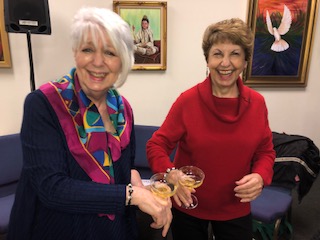
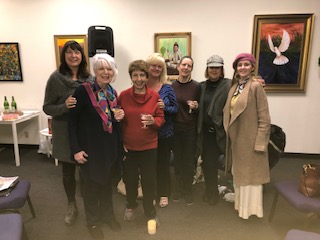
Marjorie and Lillian have contributed to additional books such as Muse & Ink: Soul Expressions Through Writing by Heather Rivera, Ph.D. To view the book click on the image below.
To learn more about Marjorie visit www.marjoriemilesauthor.com. You can also follow her on Facebook at https://www.facebook.com/drmarjoriemiles.
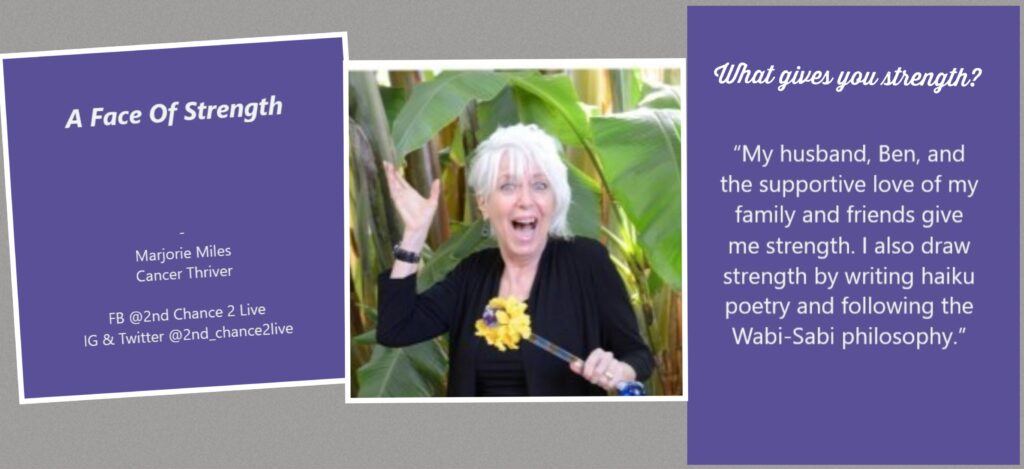

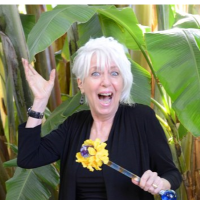
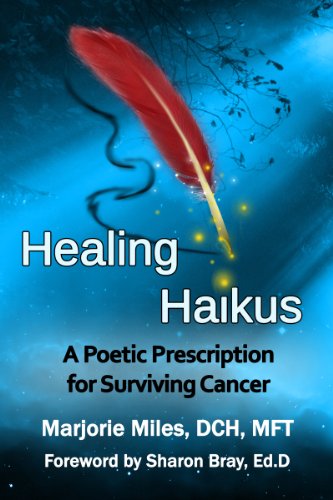
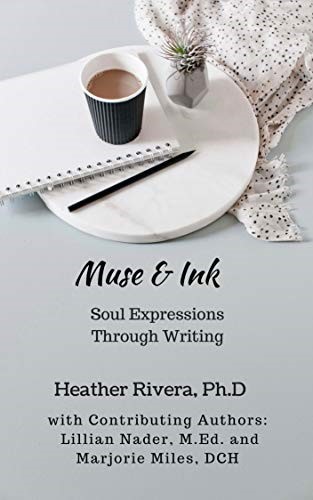
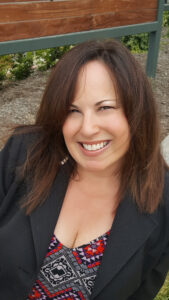 Hello. My name is Wendy and I’m a recovering workaholic. I'm also a brain tumor/cancer survivor.
The purpose of this blog is to share my experiences, memories, resources, and self-discoveries as I continue to transform from a workaholic into a more balanced person. I have read several books and stories about others who have had similar experiences
Hello. My name is Wendy and I’m a recovering workaholic. I'm also a brain tumor/cancer survivor.
The purpose of this blog is to share my experiences, memories, resources, and self-discoveries as I continue to transform from a workaholic into a more balanced person. I have read several books and stories about others who have had similar experiences 